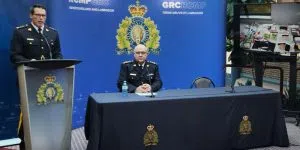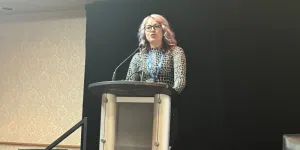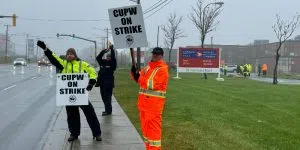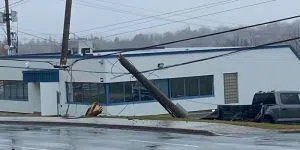The province’s Privacy Commissioner is clarifying his role after declining a request by Executive Council to review a report prepared by the Citizen’s Rep into allegations of bullying and harassment at Elections NL.
Privacy Commissioner Michael Harvey issued a release Thursday indicating that less than a half hour after receiving the request and before he had time to consider it, Executive Council issued a release indicating that the documents have been sent to his office for “review and analysis to ensure personal information of complaintants is protected.”
Harvey says the Premier and Attorney General then held a media availability indicating, according to media reports, that the Premier had “instructed” him to undertake the review, and that Harvey would “scrub” the documents as part of his “due diligence.”
Harvey wrote the Clerk of Executive Council on Wednesday declining to review the documents. He says as an independent statutory officer of the House of Assembly, any actions he takes are grounded in the Access to Information and Protection of Privacy Act, and his primary role is to provide independent review of decisions made by government and other public bodies.
He says while he has some scope to provide advice to public bodies in certain context, if he was to provide detailed advice on a decision of a public body—in this case reviewing proposed redactions—he becomes part of the decision making process, thereby undermining his ability for independent review.
Harvey also clarifies that there is no authority in law for the Premier, any minister or cabinet to instruct his office, indicating that if he was subject to instruction by the executive branch, then his role would not be seen as independent by the public.
“On the afternoon of June 7, I received correspondence from Executive Council requesting that I review a report that had been prepared by the Citizen’s Representative, and related correspondence. I had not been consulted prior to receiving this request. Less than a half hour later, before I had the opportunity to consider the request, Executive Council issued a press release indicating that the documents had been sent to my Office for “review and analysis to ensure personal information of complainants is protected”. Also, the Premier and Attorney General held a media availability regarding this matter. While these may not have been the Premier’s words, the media reported that the Premier had “instructed” me to undertake this review. He was quoted to say that I would “scrub” the documents as part of my “due diligence”.
On June 8, I wrote the Clerk of the Executive Council to decline to review these documents. As an independent statutory officer of the House of Assembly, actions that I take are grounded in the Access to Information and Protection of Privacy Act, 2015. My primary role, as defined in that statute, is to provide independent review of decisions made by the government and other public bodies. While there is some scope for me to provide advice to public bodies in certain contexts, if I provide detailed advice on a decision of a public body – in this case, reviewing proposed redactions – I become part of the decision making process and thereby undermine my ability to provide independent review. If there was a complaint about this matter, my ability to review it would be compromised. As it happens, I have already received one complaint related to this matter. The suggestion that the review of documents in advance of their disclosure is my due diligence suggests that I bear responsibility for these decisions. Instead, the due diligence must be taken by the public body, and is subject to my review.
It also must be clarified that there is no authority in law for the Premier, any Minister or Cabinet to instruct my Office. The House of Assembly, as the legislative branch, provides oversight of the executive branch. If I was subject to instruction by the executive branch, then my role would not be seen as independent by the public. Trust in government is based on the existence of strong oversight, and the integrity of that oversight must be maintained.
I believe that the Premier’s intention in asking me to review the documents was a good faith effort to protect the privacy of the complainants and witnesses to this report. The only advice that I am able to offer the government is that, if ultimately it chooses to release some or all of these documents or information within them, that it satisfies itself that it has the legal authority to do so, and it makes best use of the resources that it has available to it, in the form of experienced ATIPP coordinators and legal advice, to make appropriate redactions. My role will be to provide independent oversight of these decisions.
























